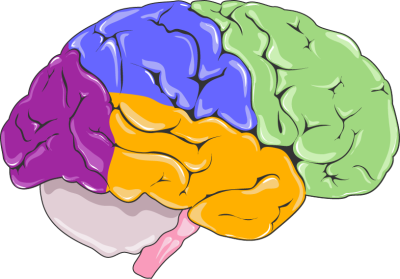Background: Non-human primate models have been useful in clarifying estradiol‘s role in cognitive processing. These animal studies indicate estradiol impacts cognitive processes supported by regions within dorsolateral prefrontal cortex (DLPFC). Although human functional neuroimaging studies have begun to find similar relationships between estradiol in women for some forms of ‘cold’ cognitive control, to date no studies have examined the relationship between estradiol and DLPFC function in the context of active attempts to regulate one’s emotions. Here, we asked whether peripheral 17-beta estradiol levels in adolescent girls in different pubertal developmental stages (age = 14.9 years ± 1.74) were related to engagement of DLPFC regions during the use of a cognitive strategy for regulating emotion known as reappraisal using functional Magnetic Resonance Imaging. Findings indicated that higher estradiol levels predicted greater DLPFC activity during the down-regulation of negative emotion using reappraisal. This is the first report of an association between estradiol level and DLPFC activity during cognitive reappraisal of negative emotion. The study suggests a possibility that estradiol might positively contribute to regulatory function of a cortical system important for emotional experiences.
Amygdala and prefrontal cortex activity varies with individual differences in the emotional response to psychosocial stress.
Background: Stress elicits a variety of psychophysiological responses that show large interindividual variability. Determining the neural mechanisms that mediate individual differences in the emotional response to stress would provide new insight that would have important implications for understanding stress-related disorders. Therefore, the present study examined individual differences in the relationship between brain activity and the emotional response to stress. In the largest stress study to date, 239 participants completed the Montreal Imaging Stress Task (MIST) while heart rate, skin conductance response (SCR), cortisol, self-reported stress, and blood oxygen level dependent (BOLD) functional MRI (fMRI) signal responses were measured. The relationship between differential responses (heart rate, SCR, cortisol, and self-reported stress) and differential BOLD fMRI data was analyzed. Dorsolateral prefrontal cortex (PFC), dorsomedial PFC, ventromedial PFC, and amygdala activity varied with the behavioral response (i.e., SCR and self-reported stress). These results suggest the PFC and amygdala support processes that are important for the expression and regulation of the emotional response to stress, and that stress-related PFC and amygdala activity underlie interindividual variability in peripheral physiologic measures of the stress response.

